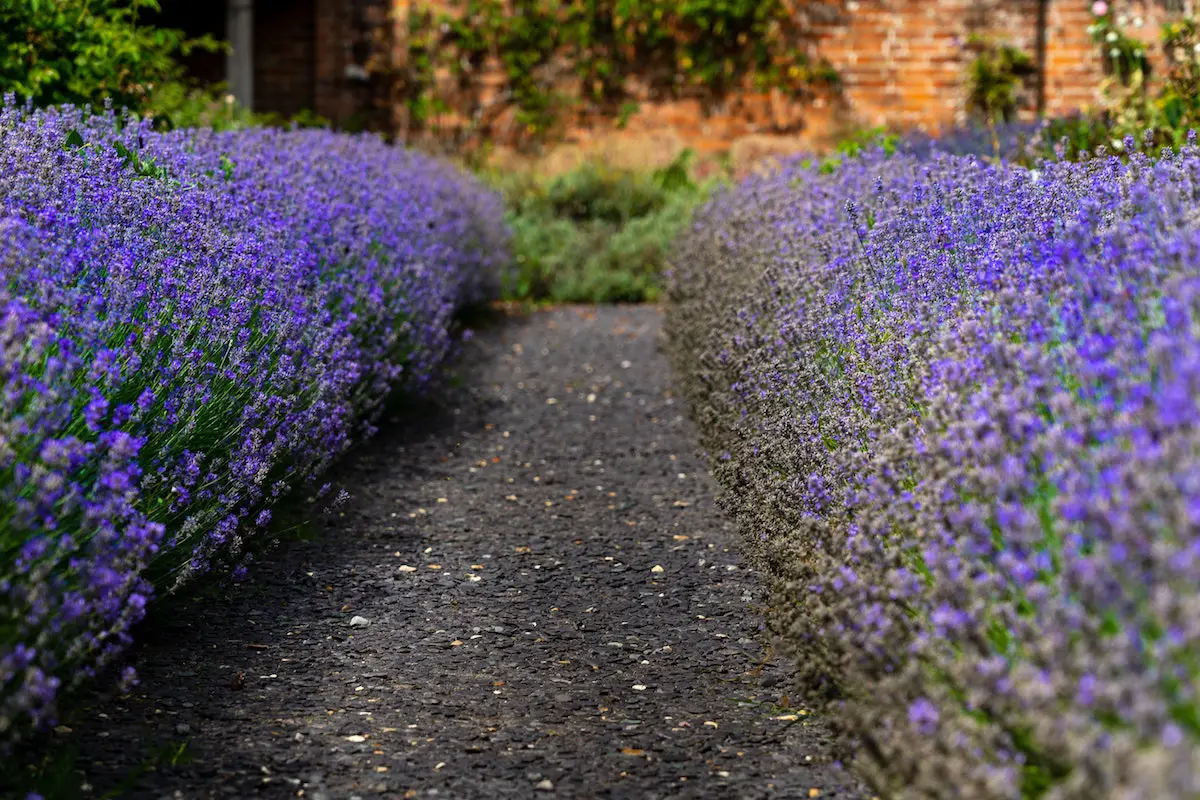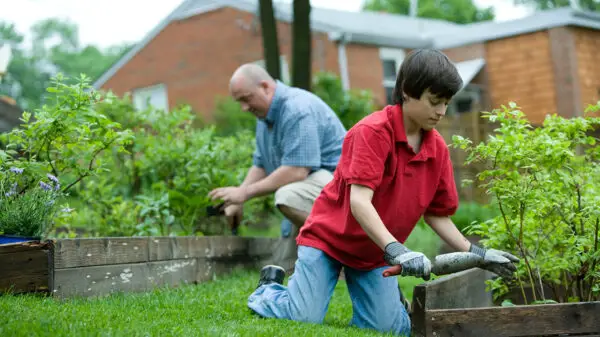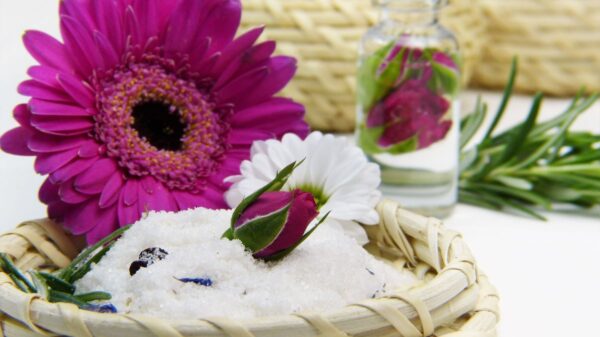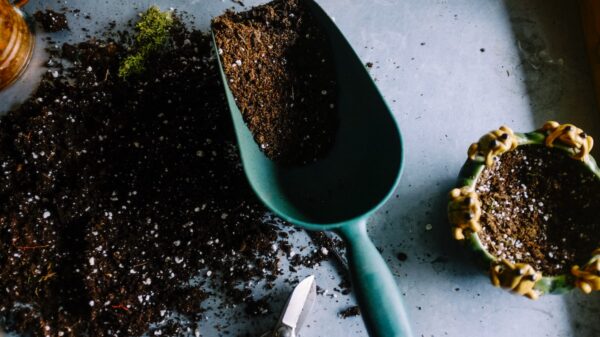Plants In Your Garden That Reduce Stress
I love plants, and I’m especially intrigued by plants that have uses besides simply looking pretty. When I started planning out what to put in my garden this year, I decided to look into some plants that had some additional stress-relieving properties to them.
Here are 10 plants in your garden that can help reduce stress:
- Lavender
- Rosemary
- Chamomile
- Mint
- Basil
- Cilantro
- Thyme
- Geranium
- Lemon Balm
- Hawthorne
Each of these plants has its own uses and features that can be used to reduce your visitors’ and your stress levels.
10 Plants That Reduce Stress
If you are living a busy life, it’s not uncommon that stress and other things to pile up on you. That’s why you have to find ways to reduce that stress and to find things that give you and your home a calming, relaxing, and positive atmosphere. So, here are the ten plants that will reduce your stress.
1. Reducing Stress With Lavender
This pretty purple flower is not only beautiful, but it’s also incredibly fragrant. The scent of lavender is said to be very relaxing and can help to reduce stress and anxiety. When used in aromatherapy, lavender has also been shown to improve sleep quality.
You can enjoy the scent of this plant as it grows, or you can dry its blossoms to put in a cloth bag to smell all year long. Tuck it into your dresser to give your clothes a fresh scent or into your pillowcase so you can breathe in the lavender’s soothing fragrance as you fall asleep.
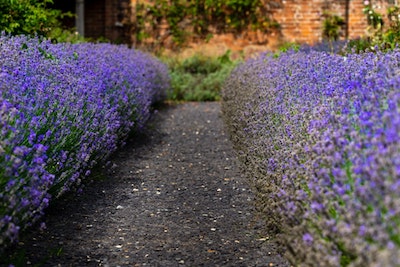
2. Reducing Stress With Rosemary
This is another plant that is known for its relaxing properties. Rosemary can help to improve mental clarity and focus while also reducing stress and anxiety. This makes it a great plant to grow if you’re looking to improve your productivity while keeping your stress levels down.
Rosemary can be used in a number of ways, including as an essential oil, in teas, or even as a potpourri. Add some rosemary to your next bath for a relaxing and stress-reducing experience.
3. Reducing Stress With Chamomile
Chamomile is a plant that is often consumed as a tea. This is because chamomile has relaxing properties that can help to reduce stress, anxiety, and even insomnia. Sipping a cup of delicately flavored chamomile tea is a great way to unwind at the end of a long day.
You can also find chamomile oil, which can be used in aromatherapy. This can be a great way to reduce stress and promote relaxation. If you don’t want to consume the plant, simply seeing its cheerful blossoms growing in your garden can help lower your stress levels.
4. Reducing Stress With Mint
This refreshing herb is not only good for your breath, but it can also help to improve your mood and reduce stress levels. Mint has a calming effect that can help to relieve tension headaches and muscle aches.
Mint can be used in a number of ways, including as a tea, in essential oils, or as a fresh plant. You can also add mint to your bathwater for a refreshing and stress-reducing experience.
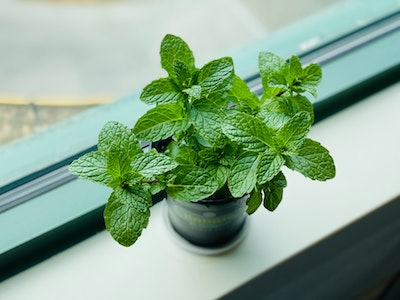
5. Reducing Stress With Basil
This sweet-smelling herb does more than just make your dishes taste great. Basil has also been shown to have stress-reducing properties. This is likely due to its calming effect on the nervous system.
Basil can be used in a number of ways, including in aromatherapy or as a fresh or dried herb. Add some basil to your next meal, crush up some leaves and breathe in their scent, or add some to your bathwater.
6. Reducing Stress With Cilantro
This flavorful herb is not only good for your dishes, but it can also help to reduce stress levels. Cilantro is a relaxant that soothes your body and is even said to improve sleep quality.
Cilantro can be used in a number of ways, including in essential oils or eaten as a fresh plant. To enjoy the benefits of this plant growing in your garden, add some cilantro to your next meal or smoothie for a stress-reducing boost.
7. Reducing Stress With Thyme
This versatile herb can be used in a number of dishes, but it also has stress-reducing properties. Thyme can help to soothe the nervous system and can also be used in aromatherapy to calm and focus the mind.
Thyme can be used in a number of ways, including as a fresh plant, in essential oils, or as a fresh or dried herb. Add some dried thyme to your meal or turn it into potpourri for a stress-reducing experience.
8. Reducing Stress With Geranium
This beautiful plant is not only a great aesthetic addition to your garden, but it can also help to reduce stress levels. Geraniums have a distinct scent that many people say helps to ground them and reduce their anxiety levels.
Some varieties of geraniums can even be used to make tea, allowing you to take even more advantage of this easy-to-grow plant’s calming properties. You can also find geranium oil, which can be used in aromatherapy or as a natural perfume.
9. Reducing Stress With Lemon Balm
Lemon balm is a lemon-scented herb that’s part of the mint family. It’s often used in teas and essential oils for its ability to improve mood and reduce stress. Plus, it’s enjoyable to smell as it grows.
Lemon balm can also be used fresh, dry, or as an extract. Add it to your next bath for a stress-reducing experience or try sipping on lemon balm tea.
10. Reducing Stress With Hawthorn
Hawthorn is a flowering plant that’s often used in landscaping. The flowers of the plant are said to have a calming effect and can help to reduce stress and lower blood pressure levels.
Hawthorn can be used in a number of ways, including as a dried herb, fresh plant, or essential oil. It is powerful though, so make sure you talk to your doctor before using it for anything besides an ornamental plant. Even simply looking at the plant’s flowers and berries can be calming, however.
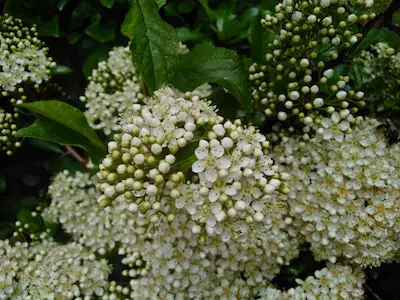
Related Questions:
How do I know which plants to put in my yard?
The best way to know which plants will thrive in your yard is to consult with a local nursery or gardening center. They will be able to tell you which plants are best suited for your climate and soil type. You can also ask for recommendations on what plants would work well together in your garden.
When should I plant these stress-reducing plants?
The best time to plant most flowers and herbs is in the spring, after the last frost. However, some plants can be planted in the fall as well. Consult with your local nursery to find out when the best time to plant particular species in your area is.
How should I care for my stress-reducing plants?
Once you’ve planted your stress-reducing plants, it’s important to care for them properly so they can thrive. Make sure you water them regularly and fertilize them according to their needs. You should also deadhead the flowers regularly to encourage new growth. If you’re not sure how to care for a particular plant, ask your nursery or gardening center for advice.
In Closing
If you’re looking for a way to reduce stress in your life, consider adding some of these plants to your garden. From lavender to rosemary, there are plenty of options to choose from that can help with your mental health and mood. With a little patience and care, you can have a beautiful and relaxing garden that can help reduce your stress levels.


